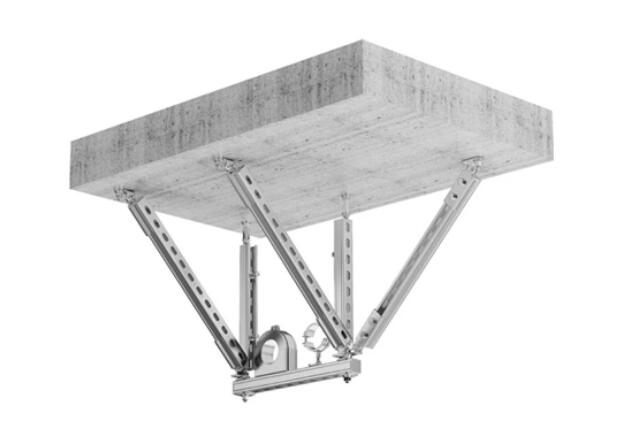Seismic Hangers

პროდუქტის აღწერა
Seismic Hangers
Seismic hangers from Tiantie are a type of support system used in buildings to secure non-structural elements such as pipes, ducts, and electrical conduits during seismic events. They are designed to allow these systems to move without causing damage or disconnection, thus maintaining the integrity of the building’s mechanical, electrical, and plumbing (MEP) systems during and after an earthquake.
Tiantie's seismic hangers are typically made of robust materials like steel and are engineered to withstand the forces generated during an earthquake. These seismic hangers for pipe are designed to accommodate both vertical and lateral movement, and some models also include features to limit the movement of the supported systems to prevent them from hitting other components or structures.
The use of seismic hangers is particularly important in regions prone to earthquakes, where they are often a requirement under local building codes. These seismic hangers for pipe are an essential part of a building’s seismic bracing for plumbing system, which also includes other components like braces, struts, and anchors.
Features of Seismic Hangers
Factory Prefabricated and On-Site Assembly: Seismic hangers from Tiantie, including seismic hangers for pipe, are often prefabricated in a controlled factory environment to ensure high quality and precision. This prefabrication allows for efficient on-site assembly, reducing installation time and minimizing disruptions to ongoing operations.
Various Structural Types: Tiantie's seismic hangers come in a variety of structural types to accommodate different building requirements and system configurations. Whether it's for piping, ductwork, or electrical conduits, these hangers are designed to provide optimal support and stability during seismic events.
Material Customization: To meet specific project needs, Tiantie's seismic hangers for pipe and other applications can be customized using a range of materials. This customization ensures that the hangers are compatible with the environmental conditions and load requirements of the installation site, enhancing their durability and performance.
Convenient and Fast Construction: The design of Tiantie's seismic hangers prioritizes ease of installation, making the construction process both convenient and fast. This is particularly beneficial in projects with tight schedules or in retrofitting existing structures, where minimizing downtime is crucial.
Application of Seismic Hangers
Mainly used in mechanical and electrical facilities such as building water supply and drainage, fire protection, heating, ventilation, air conditioning, gas, heat, strong and weak electricity, ect:
Seismic hangers from Tiantie, including specialized seismic hangers for pipe, are primarily utilized in a wide range of mechanical and electrical facilities to ensure stability and safety during seismic events. These applications encompass critical building systems such as water supply and drainage, where seismic hangers for pipe provide essential support to prevent leaks and ruptures. In fire protection systems, seismic hangers ensure that fire suppression pipes remain intact and operational, safeguarding the building and its occupants.
In heating, ventilation, and air conditioning (HVAC) systems, seismic hangers are used to secure ductwork and piping, maintaining the integrity of climate control systems during an earthquake. Gas and heat distribution networks also benefit from the robust support provided by seismic support for pipes, which help to prevent hazardous leaks and ensure continuous service.
Additionally, seismic hangers are employed in electrical systems, both strong and weak current, to secure conduits and cable trays. This application is crucial for maintaining the functionality of electrical infrastructure, preventing potential electrical hazards, and ensuring the continuous operation of essential services.

